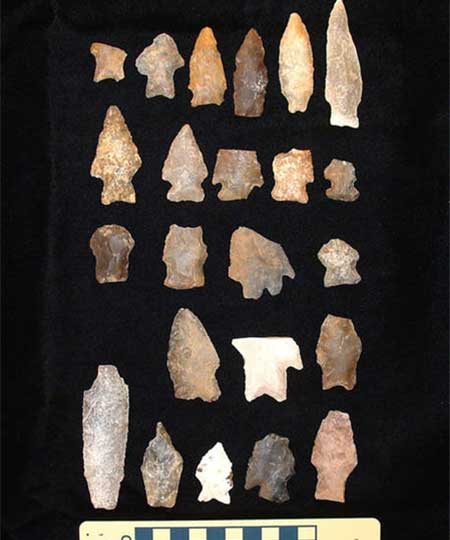Cultural Resources Services
Services We Provide
- NHPA Section 106 Compliance
- Historical and Archival Reviews
- Archeological Probability Assessments
- Archeological and Historical Surveys
- NRHP Eligibility Assessments
- Property History Research
- National Register Nominations
- Mechanical Deep Testing Support
- Burial Exhumations and Cemetery Delineations
- HABS/HAER Documentation
- Mitigation Plans and Data Recovery
- NEPA Documentation and Analysis
- Alternatives Analysis
- Direct/Indirect/Cumulative Impact Assessments
- Section 4(f) Evaluations
- Historic Architecture and Urban Planning
- Tribal Consultation
- Prehistoric/Historic Artifact Analysis and Curation

How Can Cultural Resources Affect My Project?
Laws and Regulations
The federal law that triggers most cultural resources investigations is the National Historic Preservation Act of 1966 (NHPA). Section 106 of the NHPA requires that every federal agency take into account how each of its undertakings, such as issuance of a permit, could affect historic and/or prehistoric properties either listed in, or eligible for, the National Register of Historic Places (NRHP) on either federal, public, or private lands with jurisdictional concerns.
Regulations for implementing compliance with Section 106 have been published in the Federal Register as 36 CFR Part 800. Review of compliance with Section 106 is through the State Historic Preservation Offices (SHPO) and the lead federal agency with jurisdiction over the project; for example, the US Army Corps of Engineers (COE), US Forest Service (USFS), Federal Energy Regulatory Commission (FERC), or the US Environmental Protection Agency (EPA).
In addition to the NHPA, other federal laws that can come into play are the Antiquities Act of 1906 (Public Law 59-029), Historic Sites Act of 1935 (Public Law 74-292), National Environmental Policy Act of 1969 (Public Law 91-190), Preservation of Historic and Archaeological Data, as amended (Public Law 93-291), American Indian Religious Freedom Act (Public Law 95-341), Archaeological Resource Protection Act of 1979 (Public Law 96-95), and other legislation pertaining to cultural resources and antiquities.
The NHPA (16 USC 470) created the Advisory Council on Historic Preservation (ACHP), an independent federal agency, to advise the President and Congress on matters involving historic preservation. The ACHP is authorized to review and comment on all actions licensed by the federal government that will have an effect on properties listed in the National Register for Historic Places, or eligible for such listing.
Specifically, Section 106 of the Act (16 U.S.C. 470(f)) requires that a federal agency involved in a proposed project or activity is responsible for initiating and completing the review process. The agency must confer with the State Historic Preservation Officer (an official appointed in each State or territory to administer the National Historic Program) and the NHPA. For example, the Antiquities Code of the State of Texas requires that the Texas Historical Commission review any action that may disturb historic and/or archeological sites on state land. Actions that need review may include any construction on land owned or controlled by a state agency or a state political subdivision, such as a city or county. Before development that will affect important historic and archeological sites can proceed, antiquities permits are required for the appropriate archeological investigating.
The National Register is an inventory of the United States’ historic resources and is maintained by the National Park Service. The inventory includes building, structures, objects, sites, districts, and archeological resources. The listed properties are not necessarily significant nationally, rather most are significant primarily at the state or local level. As mentioned above, Section 106 also encompasses significant properties which have not yet been listed or formally determined to be eligible for listing.
Federal actions include, but are not limited to, construction, rehabilitation and repair projects, demolition, licenses, permits (e.g., Clean Water Act Section 404 permits), loans, loan guarantees, grants, and federal property transfers. The agency sponsoring one of these activities is obligated to seek ACHP comments.
Contact Our Team
Find out how the highly trained professionals at Horizon can help your project succeed.

